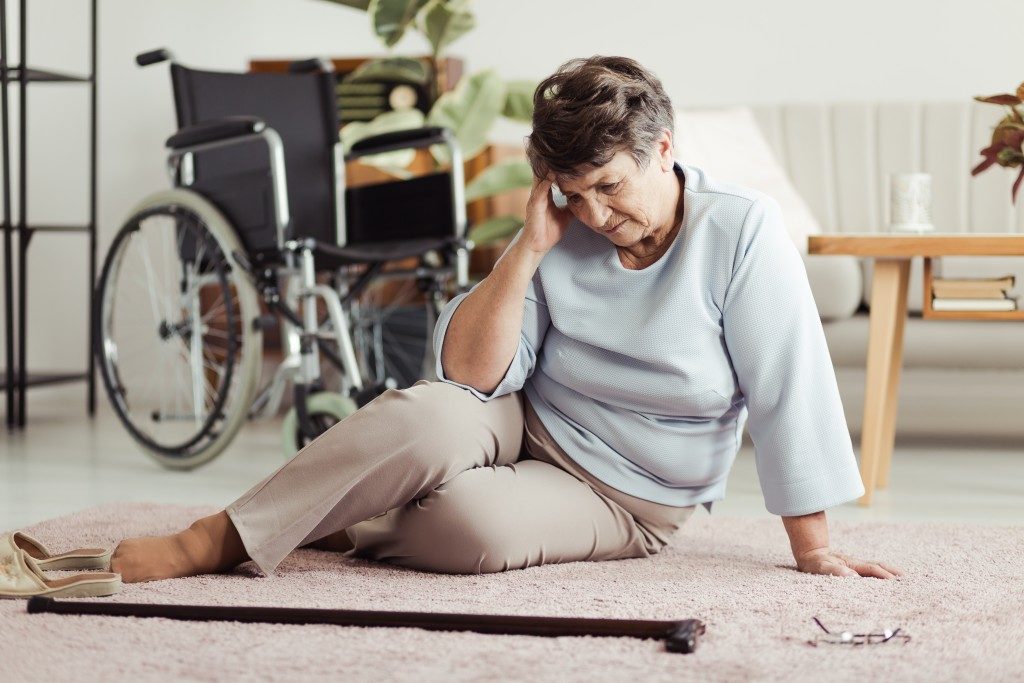Older adults are vulnerable to falls. Even those who aren’t suffering medical conditions. The normal aging process simply causes over-all health to decline, so falls become a common, frequent reality. Beyond the fall itself, the anxiety over this incidence is equally a cause of concern among families. It robs seniors of a meaningful, happy life in their twilight years.
The Problem with Falling Fears
A fall can result in serious injuries. In fact, some are fatal, especially when the head or the spine are affected. On the flip side, those that aren’t life-threatening are often life-limiting. Patients are strapped to the hospital bed for days. When they come home, they’re dependent on medications and support braces. It’s not surprising then that people who have a history of falls are afraid to move freely again and go back to their normal routines. This then results in layers and layers of issues concerning mental health.
For instance, some seniors become depressed. Your loved one may feel like they’ve lost control over their bodies, so they’re helpless at the fact of their declining health. They’re probably embarrassed that they need your help from now on, even at the little things, like going to the bathroom.
In the process, they might feel worthless and just a burden to the family. Along with this, they may isolate themselves. They would skip family reunions, even simple dinners. They would be cooped up in their homes, glued to their couches or beds all day long. When they’re the type to go for a morning a jog before, now it’s all just about keeping movements to a minimum because of the fear of falling.
The Caregiver’s Duty

When a loved one experiences a fall, family members will go on a protective mode, discouraging their relative to move around. While your intentions are good, this can only backfire. It can make your loved one all the more afraid. Not to mention, more vulnerable to falls because their bodies aren’t familiar with movements anymore. Instead of discouraging them, your goal is to restore their confidence and sense of dignity in moving around.
Start by making your home a fall-proof home. Install grab rails or poles near your loved one’s beds and at the stairs. Use walk-in bathtubs for seniors and non-slip rugs all throughout the space. Repair uneven or cracked flooring. Improve also the lighting in entry areas. Outside, create a ramp on your doorstep if your home is quite elevated. Use rails here, as well.
Aside from changing the physical environment, you should be able to make a difference in your social-emotional dealings with your loved one too. Open lines of communication with them so they can freely confide with you. Don’t dismiss their feelings, despite how petty they may seem to you. It’s also good to host community activities at your home, let’s say a bridge game or knitting session to avoid isolation tendencies. Ask your loved one for more ideas. This might just allow them to rediscover their purpose, dispelling feelings of worthlessness.
Fear of falling is a terrible feeling many older adults struggle with. If your loved one experienced falling in the past, get rid of their anxieties by creating a safe home and promoting an empathetic relationship.




